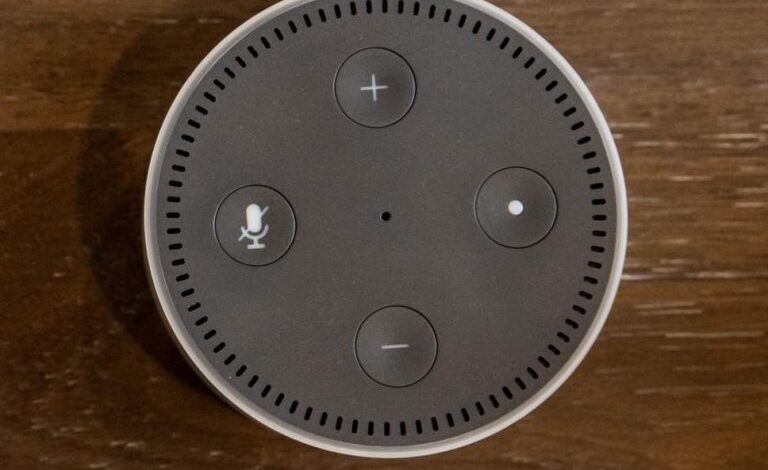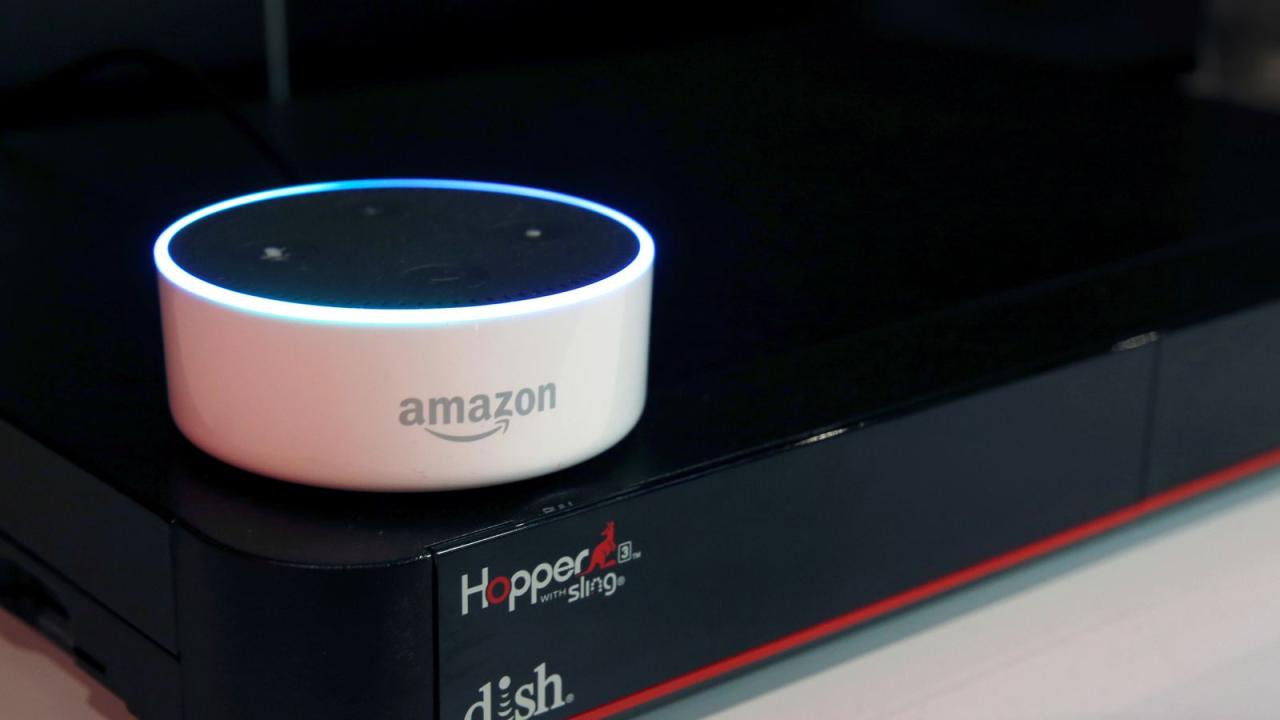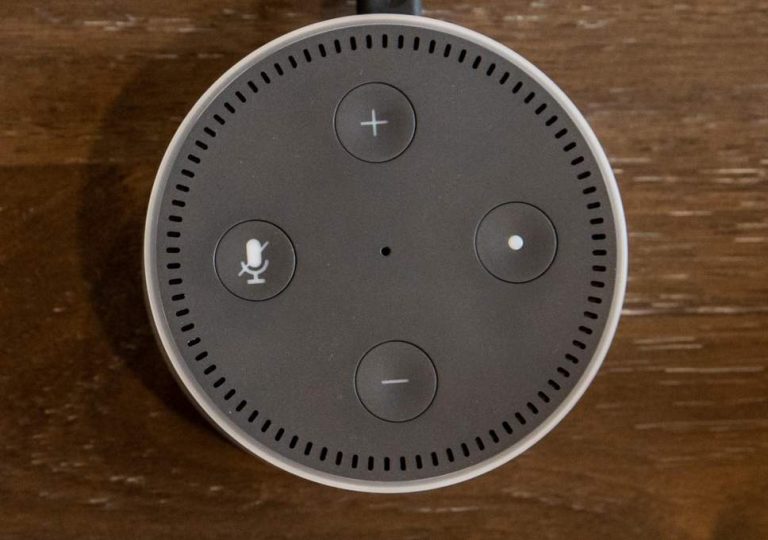
Amazon Workers Listen to Alexa Conversations
Amazon workers listen to Alexa conversations – a chilling thought, right? This isn’t some dystopian sci-fi novel; it’s a very real concern sparking debate about employee privacy and corporate ethics. The implications of Amazon’s use of Alexa in the workplace are far-reaching, touching on everything from legal ramifications to the potential impact on employee morale and even Amazon’s brand reputation.
We’re diving deep into this complex issue, exploring the technical details, the legal grey areas, and the very real human impact of always-listening devices.
This post unpacks the privacy concerns surrounding Amazon’s use of Alexa in the workplace. We’ll examine the potential for legal violations, the ethical dilemmas involved, and the tangible effects on employee trust and productivity. We’ll also look at how Amazon’s policies compare to those of its competitors, and what steps could be taken to mitigate the risks associated with this technology.
Prepare to have your assumptions challenged and your understanding of workplace surveillance broadened.
Amazon’s Alexa Privacy Concerns

The use of Amazon’s Alexa devices in the workplace raises significant privacy concerns for employees. While Amazon has addressed the initial uproar surrounding employee listening to Alexa conversations, deeper ethical and legal questions remain about the extent of data collection and its potential misuse. The inherent nature of voice assistants, designed to constantly listen for activation words, creates an environment where employee conversations, even those not intended for the device, could be captured and analyzed.
Potential Privacy Risks Associated with Workplace Alexa Recordings
The potential for privacy violations stemming from Alexa’s presence in the workplace is substantial. Unintentional recordings of sensitive conversations, including discussions about personal matters, health concerns, or even political opinions, could be stored and potentially accessed. This data could be misused for discriminatory practices, targeted advertising, or even blackmail. The lack of transparency regarding data storage, access protocols, and data retention policies further exacerbates these concerns.
Employees may be unaware of the extent to which their conversations are being monitored, leading to a sense of vulnerability and distrust.
Violation of Privacy Laws and Regulations
The recording and analysis of employee conversations without explicit and informed consent could violate numerous privacy laws and regulations, varying by jurisdiction. Laws such as the California Consumer Privacy Act (CCPA) and the European Union’s General Data Protection Regulation (GDPR) grant individuals significant control over their personal data. If Amazon’s data collection practices fail to comply with these regulations, the company could face substantial fines and legal challenges.
Furthermore, even if recordings are anonymized, the possibility of re-identification cannot be entirely ruled out, further jeopardizing employee privacy.
Ethical Implications of Using Voice Assistants to Monitor Employees
The ethical implications of using voice assistants to monitor employees are profound. Such practices can create a chilling effect on open communication and collaboration within the workplace. Employees may be less likely to express dissenting opinions or engage in candid conversations for fear of reprisal or negative consequences. This erosion of trust can significantly impact workplace morale and productivity.
The inherent power imbalance between employer and employee further exacerbates the ethical concerns. The employer holds the data, and the employee has limited control over its collection and use.
Comparison of Amazon’s Data Privacy Policies with Competitors
Amazon’s data privacy policies regarding workplace Alexa usage are not publicly available in the same detailed manner as some competitors. While they state a commitment to privacy, the specifics concerning employee voice data collected in a work environment are largely undisclosed. This lack of transparency makes it difficult to compare their practices directly with those of competitors who may have more clearly defined policies.
Many companies utilize voice technology in the workplace but with different levels of employee notification and consent. A more detailed analysis of their specific policies is required for a complete comparison.
Comparison of Company Policies on Employee Voice Data Collection
| Company | Data Collection Transparency | Employee Consent | Data Usage Restrictions |
|---|---|---|---|
| Amazon | Limited public information | Unclear | Unclear |
| Relatively transparent policies for workplace products | Requires explicit consent for most data collection | Data primarily used for product improvement and specified business purposes | |
| Microsoft | Detailed privacy policies available | Explicit consent mechanisms in place | Strict data usage limitations and compliance with relevant regulations |
| Apple | Strong emphasis on user privacy and data minimization | Explicit consent required | Data usage limited and transparent |
Employee Surveillance and Monitoring
The revelation that Amazon employees may listen to Alexa conversations raises significant concerns about employee surveillance and its impact on the workplace. This goes beyond simple data privacy; it delves into the realm of constant monitoring, potentially affecting employee morale, productivity, and even fostering a climate of fear and distrust. The implications are far-reaching and demand careful consideration.The constant recording of conversations through Alexa-enabled devices in the workplace creates a palpable atmosphere of surveillance.
This can lead to a “chilling effect” on open communication among employees. Individuals may self-censor their thoughts and conversations, fearing that even casual remarks could be misinterpreted or used against them. This stifles creativity, collaboration, and the free exchange of ideas crucial for a productive work environment.
Impact on Employee Morale and Productivity
The pervasive sense of being monitored can significantly damage employee morale. Workers may feel a lack of trust in their employer, leading to decreased job satisfaction, increased stress, and ultimately, reduced productivity. Studies have shown a direct correlation between employee surveillance and decreased job performance, as individuals become preoccupied with avoiding potential repercussions rather than focusing on their work.
For example, a team tasked with brainstorming innovative solutions might hesitate to share unconventional ideas if they fear their suggestions will be scrutinized and potentially judged negatively based on overheard conversations.
Examples of the Chilling Effect on Communication
Imagine a team discussing a challenging project. Knowing their conversation is being recorded, team members might avoid expressing doubts or concerns openly, for fear of appearing incompetent or negative. This can lead to missed opportunities for constructive criticism and problem-solving. Similarly, casual conversations about personal matters, which often contribute to team cohesion and camaraderie, could be stifled, creating a more isolated and less supportive work environment.
The potential for misunderstandings also increases, as nuanced conversations lack the benefit of immediate clarification and context.
Potential for Misuse of Recorded Conversations
The recording of employee conversations presents a significant risk of misuse. There’s a potential for discriminatory practices, where comments are taken out of context or used to unfairly target specific employees. For instance, a casual conversation about personal challenges could be misinterpreted as a sign of unprofessionalism or incompetence. Similarly, conversations among employees discussing workplace issues or advocating for better conditions could be used to retaliate against those involved.
This creates a climate of fear and undermines the principles of fair treatment and equal opportunity in the workplace.
Strategies for Mitigating the Negative Impacts of Workplace Voice Surveillance
Transparency and clear communication are crucial. Employees must be fully informed about what is being recorded, how the data is used, and what safeguards are in place to protect their privacy. Strong data protection policies, including clear guidelines on data access and retention, are essential. Regular audits and independent reviews of these policies can ensure accountability and build employee trust.
Additionally, providing employees with control over when recording is active (if technically feasible) can empower them and mitigate some of the negative impacts. Finally, robust mechanisms for addressing grievances and concerns related to surveillance are necessary to ensure fairness and accountability.
Best Practices for Companies Using Voice Assistants in the Workplace
Prioritizing employee privacy should be paramount. Companies should implement strict data minimization principles, only collecting and retaining the data absolutely necessary for legitimate business purposes. Data encryption and secure storage are vital to protect against unauthorized access. Transparency is key; employees should be informed about data collection practices and have the opportunity to opt out if possible.
Regular privacy impact assessments should be conducted to identify and mitigate potential risks. Moreover, establishing clear guidelines on the appropriate use of voice data and providing comprehensive training to employees and managers is crucial to prevent misuse and promote responsible practices. Finally, creating a robust and accessible grievance procedure to address employee concerns about voice data usage is paramount.
Technological Aspects of Alexa in the Workplace
The integration of voice assistants like Amazon’s Alexa into the workplace presents a fascinating intersection of convenience and complex technological challenges. Understanding the technical underpinnings of Alexa’s operation, particularly concerning data handling and security, is crucial for responsible implementation and ethical considerations. This section delves into the technological aspects of Alexa’s functionality within a professional environment, examining its capabilities, data processing procedures, security measures, and potential improvements.
Alexa’s core functionality relies on sophisticated voice recognition and natural language processing (NLP) algorithms. These algorithms analyze the acoustic signal of spoken words, converting them into text. This text is then processed by NLP engines to understand the intent behind the utterance. The data generated, including both the audio recording and its textual transcription, is then stored and potentially analyzed.
The capacity and location of this data storage vary depending on the specific configuration and the type of Alexa device deployed.
Alexa’s Voice Recognition and Data Storage Capabilities
Alexa devices employ advanced far-field voice recognition, enabling them to accurately capture voice commands from a distance. This involves multiple microphones and sophisticated signal processing techniques to filter out background noise. The data, initially stored on the device itself, is then typically transmitted to Amazon’s cloud servers for processing and storage. The amount of data stored depends on several factors, including the frequency of use and the specific features enabled.
For example, features like voice history logging and voice-activated recording of meetings will naturally lead to a larger data footprint. Amazon’s cloud infrastructure, while robust, is subject to the inherent vulnerabilities of any large-scale data storage system.
Voice Data Recording, Storage, and Analysis Processes
The process begins with the recording of the voice input. This audio is then converted into text using automatic speech recognition (ASR) technology. The transcribed text, along with metadata such as timestamp and device ID, is stored in Amazon’s cloud. This data is analyzed for various purposes, ranging from improving Alexa’s performance through machine learning to fulfilling user requests.
In a workplace setting, this analysis might involve identifying trends in employee inquiries, optimizing workflows, or gathering insights from meetings. However, the process requires careful consideration of privacy implications. The storage duration of this data varies, often dependent on user settings and Amazon’s data retention policies.
Security Measures for Protecting Employee Voice Data
Amazon employs various security measures to protect user data, including encryption both in transit and at rest. Access control mechanisms limit access to sensitive data based on roles and permissions. However, the potential for unauthorized access remains a concern, particularly given the volume and sensitivity of data involved. The lack of complete transparency regarding the specific security protocols employed by Amazon also raises questions about the effectiveness of these measures.
The potential for insider threats or sophisticated cyberattacks necessitates continuous improvement and auditing of security protocols.
Hypothetical System for Anonymizing Employee Voice Data
A system for anonymizing employee voice data could involve several steps. Firstly, the audio recordings could be processed to remove any personally identifiable information (PII) such as names, locations, or specific project details. This could involve techniques like voice transformation or replacing identifying words with placeholders. Secondly, data aggregation and analysis could focus on patterns and trends rather than individual contributions.
For instance, instead of analyzing individual employee queries, the system could analyze the overall frequency of specific types of inquiries. This approach preserves the utility of the data for business intelligence while safeguarding individual privacy.
Data Encryption and Access Control Mechanisms
Implementing robust data encryption is paramount. End-to-end encryption would ensure that only authorized individuals with the correct decryption keys could access the voice data. Furthermore, granular access control mechanisms, based on the principle of least privilege, should be implemented. This means that only those individuals who absolutely need access to specific data should be granted that access.
Regular security audits and penetration testing would help identify and address vulnerabilities. These measures, combined with strong password policies and multi-factor authentication, can significantly enhance the security of voice data.
Legal and Regulatory Ramifications
The use of Alexa in the workplace, while offering potential benefits, raises significant legal and regulatory concerns regarding employee privacy and data protection. The collection and analysis of employee voice data through Alexa devices necessitates careful consideration of existing and evolving legal frameworks to ensure compliance and avoid potential liabilities. This section examines the legal landscape surrounding employee voice data collection and use by Amazon, highlighting potential challenges and recommending strategies for compliance.
GDPR and CCPA Applicability to Employee Voice Data
The General Data Protection Regulation (GDPR) in the European Union and the California Consumer Privacy Act (CCPA) in California are key examples of data privacy regulations that are highly relevant to Amazon’s use of Alexa in the workplace. Both regulations place stringent requirements on organizations regarding the collection, processing, and storage of personal data, including voice data. GDPR’s broad definition of personal data encompasses any information relating to an identified or identifiable natural person, making employee voice data, which can reveal sensitive information about individuals, clearly subject to its provisions.
Similarly, CCPA, while focused on California residents, also covers the collection and use of personal information, including voice data, requiring companies to provide consumers with transparency and control over their data. Compliance requires Amazon to demonstrate lawful bases for processing this data, implement appropriate security measures, and provide individuals with rights to access, rectification, and erasure of their data.
Failure to comply can result in substantial fines and reputational damage.
Potential Legal Challenges Faced by Amazon
Amazon could face various legal challenges related to its use of Alexa in the workplace. For instance, employees could allege violations of their privacy rights if they believe their conversations were recorded and analyzed without their informed consent. Claims of wrongful termination or discrimination based on information gleaned from Alexa recordings are also plausible. Class-action lawsuits, particularly in jurisdictions with strong employee protection laws, could arise if a significant number of employees feel their privacy has been violated.
Furthermore, challenges could focus on the lack of transparency regarding data collection practices and the absence of robust mechanisms for employee oversight and control. The legal precedent set by previous cases involving employee monitoring, even in less technologically advanced contexts, could be used to argue against Amazon’s practices. For example, the ongoing debates around workplace surveillance using CCTV could provide a framework for similar arguments about Alexa’s use.
Comparative Legal Landscape Regarding Employee Monitoring
The legal landscape surrounding employee monitoring through voice assistants varies significantly across countries. In some jurisdictions, with strong employee privacy protections like Germany, the use of such technology without explicit and informed consent could face significant legal hurdles. Other countries, with less stringent regulations, might offer Amazon more leeway, but even there, best practices and ethical considerations should guide implementation.
The absence of a harmonized global standard necessitates a nuanced, country-specific approach to legal compliance. This requires Amazon to adapt its data handling practices to meet the unique requirements of each jurisdiction where it operates. Failure to do so could expose the company to a patchwork of legal liabilities across its global operations.
Potential Legal Consequences of Employee Privacy Violations
Violations of employee privacy by Amazon through its use of Alexa could lead to a range of severe legal consequences. These include hefty fines imposed by data protection authorities under regulations like GDPR and CCPA, as mentioned previously. The company could also face costly litigation, including class-action lawsuits, resulting in significant financial penalties and reputational damage. Further, regulatory investigations and negative publicity could severely impact Amazon’s brand image and investor confidence.
In extreme cases, criminal charges could be brought if the violations are deemed sufficiently egregious. The severity of the consequences will depend on factors such as the nature and extent of the violation, the level of harm suffered by affected employees, and the jurisdiction involved.
Recommendations for Amazon to Ensure Compliance
To ensure compliance with relevant data privacy regulations and avoid legal ramifications, Amazon should implement the following:
- Obtain explicit and informed consent from employees before recording and analyzing their voice data.
- Implement robust data minimization and purpose limitation principles, only collecting and processing data necessary for legitimate business purposes.
- Provide employees with clear and accessible information about data collection practices, including the purpose, duration, and legal basis for processing.
- Establish transparent and effective mechanisms for employees to access, rectify, and erase their voice data.
- Invest in strong security measures to protect employee voice data from unauthorized access, use, or disclosure.
- Conduct regular data protection impact assessments to identify and mitigate potential risks to employee privacy.
- Establish a comprehensive data governance framework that ensures compliance with all relevant data privacy regulations globally.
- Provide regular training to employees and managers on data privacy and protection best practices.
- Establish an independent data protection officer to oversee compliance and handle data privacy related inquiries.
Public Perception and Impact: Amazon Workers Listen To Alexa Conversations

The revelation that Amazon employees may listen to Alexa conversations recorded in customers’ homes, and potentially those of Amazon workers, has sparked significant public outcry and raised serious concerns about privacy and trust. This issue extends beyond individual privacy violations; it impacts Amazon’s brand reputation, customer loyalty, and employee morale, potentially leading to long-term negative consequences for the company. The public’s reaction has been a mixture of outrage, skepticism, and growing distrust in the technology giant.Public perception of Amazon’s use of Alexa in the workplace is overwhelmingly negative.
News articles from major publications like the
- New York Times*,
- The Wall Street Journal*, and
- Bloomberg* have extensively covered the issue, highlighting the potential for misuse and the ethical dilemmas involved. These reports have fueled public anxieties about the extent of data collection and the lack of transparency surrounding Amazon’s practices. While specific public opinion polls directly addressing this workplace aspect might be limited, the broader sentiment regarding Amazon’s privacy practices, as reflected in numerous surveys and reports, reveals a significant erosion of public trust.
This negative sentiment is further amplified by pre-existing concerns surrounding data privacy and surveillance in the digital age.
Amazon’s Brand Reputation and Customer Loyalty, Amazon workers listen to alexa conversations
The negative publicity surrounding Alexa’s use in the workplace directly threatens Amazon’s brand reputation. Amazon has cultivated an image of innovation and customer-centricity, but this incident directly contradicts that image. The perception of intrusive surveillance practices can lead to a decline in customer loyalty. Customers might reconsider using Alexa-enabled devices, opting for competing products from companies perceived as more privacy-conscious.
This loss of trust could translate into reduced sales and market share for Amazon’s smart home devices and other related products. The long-term impact could involve a significant shift in consumer preference, potentially affecting Amazon’s overall dominance in the e-commerce and technology sectors.
So, Amazon workers listening to Alexa conversations – that’s a pretty big privacy concern, right? It makes you think about the data we hand over to these tech giants. This whole thing got me pondering the future of app development, especially after reading this insightful article on domino app dev the low code and pro code future , and how that might impact data security in the long run.
Ultimately, it all boils down to how responsibly we build and use these technologies, considering the potential for misuse, just like the Alexa situation highlights.
Impact on Employee Trust and Job Satisfaction
The knowledge that their conversations might be monitored by Amazon employees creates a climate of distrust and anxiety among Amazon workers. This lack of privacy can significantly impact job satisfaction and morale. Employees may feel violated, leading to reduced productivity, increased stress, and potentially higher turnover rates. The potential for disciplinary action based on monitored conversations creates a chilling effect, discouraging open communication and collaboration within the workplace.
This erosion of trust can negatively affect the company’s overall culture and ability to attract and retain talented employees. For example, if employees fear that their conversations about working conditions or company policies will be monitored and used against them, it can stifle dissent and prevent important feedback from reaching management.
Potential for Negative Publicity and Business Impact
The potential for negative publicity surrounding this issue is substantial. Further revelations about Amazon’s data practices or instances of misuse could trigger widespread boycotts, calls for regulatory intervention, and significant legal challenges. This negative publicity could damage Amazon’s investor relations, leading to a decline in stock value and reduced investment opportunities. The overall business impact could be significant, ranging from decreased sales and market share to reputational damage that takes years to repair.
The ongoing negative press coverage and potential for future lawsuits represent a significant financial and reputational risk for the company. This risk is exacerbated by the potential for international regulatory scrutiny, particularly in regions with stricter data protection laws.
Communication Strategy to Address Public Concerns
Amazon needs a comprehensive communication strategy to address public concerns. This strategy should prioritize transparency and accountability. Amazon should publicly acknowledge the concerns, clearly explain its data collection practices, and emphasize the measures taken to protect employee and customer privacy. This includes detailing the specific protocols for data access and usage, emphasizing data anonymization techniques, and outlining the oversight mechanisms in place.
Furthermore, Amazon should engage in open dialogue with stakeholders, including employees, customers, and regulatory bodies, to address their concerns and build trust. Independent audits of its data practices could demonstrate a commitment to transparency and accountability. Finally, Amazon should proactively invest in privacy-enhancing technologies and refine its data handling policies to minimize the risks associated with Alexa’s use in the workplace.
A proactive and transparent approach is crucial to mitigating the negative impact of this issue and rebuilding public trust.
Conclusion

The issue of Amazon workers listening to Alexa conversations highlights a crucial intersection of technology, privacy, and ethics. While Alexa offers potential benefits for businesses, the potential for misuse and the erosion of employee trust are significant concerns. The ongoing debate underscores the need for clear legal frameworks, robust security measures, and a proactive approach to transparency from companies utilizing similar technologies.
Ultimately, the balance between technological advancement and the fundamental right to privacy remains a challenge that requires ongoing discussion and careful consideration.
FAQ Overview
What specific data does Alexa collect from workplace conversations?
While the exact details are not publicly available, it’s likely that Alexa collects voice recordings, potentially including sensitive information like conversations about personal matters, business strategies, or even employee grievances.
Can Amazon legally listen to employee conversations without their knowledge or consent?
The legality is complex and varies by jurisdiction. Many countries have laws protecting employee privacy, and using voice assistants to monitor employees without explicit consent could violate these laws. This area is ripe for legal challenges.
What are the potential long-term effects on employee-employer relationships?
Constant monitoring can create a climate of distrust, leading to decreased morale, reduced productivity, and a chilling effect on open communication. Employees may self-censor their conversations, hindering collaboration and innovation.
Are there alternative technologies that offer similar benefits without the privacy concerns?
Yes, there are alternative technologies and strategies that could provide similar benefits without the same privacy risks. These could include anonymized data analysis techniques or systems that only record and analyze data with explicit employee consent.
